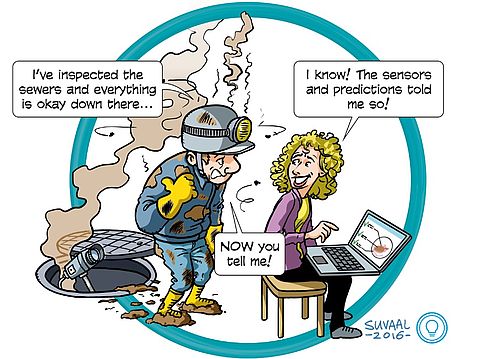SewerSense - Multi-sensor condition assessment for sewer asset management
Proactive asset management is necessary to ensure the high levels of service currently provided by the sewer system. There are three main challenges to sewer asset management addressed within this project: Firstly, the lack of reliable sewer condition data, which limits our ability to assess the past, current, and future condition of sewers and hence to identify immediate, mid-term, and long-term rehabilitation (and financial, personnel) needs. Secondly, a sewer condition assessment framework is needed that links observed defects to performance implications and hence to decision-making objectives. This also requires practically applicable models to describe, understand, and predict deterioration as well as associated risks. Thirdly, validation of inspection techniques to obtain this data, as well as predictive models exploiting it, are crucial for providing dependable decision support to sewer asset managers.
We aim to address these challenges by improving automated defect detection and classification diagnostics for closed-circuit sewer inspection (CCTV) and promising novel inspection techniques (e.g. laser range scanning, stereo vision). Their applicability and performance will be assessed and validated in the lab and in the field. Together with representatives from the Dutch urban drainage sector, we want to develop a framework for sewer condition assessment so that defect information can be directly used for condition assessment and predictive modelling of potential performance implications. We will adapt, test, and use suitable models to quantify the added value of better inspection and condition assessment techniques for identifying sewer network condition, optimal inspection intervals and the most suitable inspection approach.

Project partners
TU Delft, Leiden University
Funded by
NWO TTW
Project coordinator
Lisa Scholten
Academic staff
Arno Knobbe, Danai Konti, Dirk Meijer, Francois Clemens, Joost Kok, Rogier Wolfert
Period
2016-2020